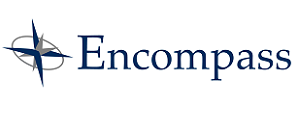Does Making Minimum Payments Hurt Your Credit Score?
There is a lot of buzz about credit scores these days. In fact, in 2021, the average credit score increased to an all-time high of 716, moving up 27 points since 2010, indicating that more Americans than ever have good credit.
A credit score is a numerical expression based on an individual's credit history that is used to determine their creditworthiness and ability to access loans and other financial services. It is a three-digit number ranging from 300 to 850, with higher scores indicating better creditworthiness. A person's credit score is calculated by considering their payment history, current debt levels, types of accounts owned, length of credit history, and more. Credit scores are used by lenders to determine the risk associated with lending money or providing other financial services to an individual.
A good credit score is important for a variety of reasons. It can help you get approved for loans and mortgages, secure better interest rates, and even get approved for certain jobs. It is also an indication of your financial responsibility and trustworthiness. Having a good credit score can open doors to many opportunities that may not be available to those with bad credit scores. Additionally, it can save you money in the long run by allowing you access to lower interest rates on loans and other financial products. For this reason, it is important to check your credit score often to ensure you are in good shape.
So, How is My Credit Score Calculated?
Credit bureaus, the institutions that calculate credit scores for individuals, have five components to their scoring systems:
· Payment history
· Amount owed
· Length of credit history
· Type of credit
· New inquiries into credit history
While each of these has a different weight in overall credit score calculations, your payment history has the greatest impact on your credit score.
Payment History and the Impact of Minimum Payments on Credit Scores
Payment history is probably the most important of all the scoring components, as it shows potential creditors your history of paying your debts back on time. It comprises all types of payments, from credit card borrowing to retail accounts, installment loans such as those for cars and education, as well as mortgages and other financial services accounts.
For the best scoring, you will want to exhibit a history of paying at least your minimum payments on time, as any payments that are late or missed will hurt your score. So, making minimum credit card payments does not hurt your credit score — in fact, it can show that you are a good credit risk, at least initially. However, over time, making only minimum payments can affect your credit utilization.
Credit utilization, or your debt-to-credit ratio, is the amount of total credit you’re currently using. This ratio can account for up to 20% — and sometimes more — of your credit score and most credit bureaus like to see credit utilization kept below 30%. So, if you’re only making minimum payments, your credit score could suffer long-term if you spend beyond your ability to pay.
How to Improve Your Credit Score by Paying Off Credit Card Debt
We’ve established that credit card minimum payment isn’t necessarily a bad thing — unless you are carrying a lot of credit card debt. When your ratio of debt to credit is high, it can adversely affect your credit score and make it more difficult for you to get loans, mortgages, and take advantage of lower interest rates.
Fortunately, there are ways you can work toward getting out of credit card debt, including using debt consolidation loans. A debt consolidation loan is a type of loan that can help you manage your debt and pay off multiple bills at once. It allows you to combine all your debts into one single loan, making it easier to manage and track payments. This type of loan can also help reduce the amount of interest you're paying on your debts, as well as potentially reducing the amount of time it takes to pay them off. With a debt consolidation loan, you can make one monthly payment instead of several smaller ones, making it easier to keep track of payments and stay on top of your finances.
Using a debt consolidation loan to consolidate credit card debt, you can not only lower your monthly payments but you can lower your credit utilization ratio. These loans often offer consumers lower interest rates than credit cards, so you will come out ahead, especially if you are making minimum payments only.
Let Encompass Credit Union Help You Keep Your Credit Score Healthy
Having a good credit score can help you in many ways, from giving you access to lower interest rates and special discounts on insurance to helping you get the loans you need — like mortgages and education financing — to achieve your life goals.
At Encompass Credit Union, we have a community of financial experts that can help you get your debt under control and keep your credit score healthier. And because we are a not-for-profit institution, you can get all the help you need without the burden of extra fees.
Ready for better credit? Contact us today and become a member of our community now!
